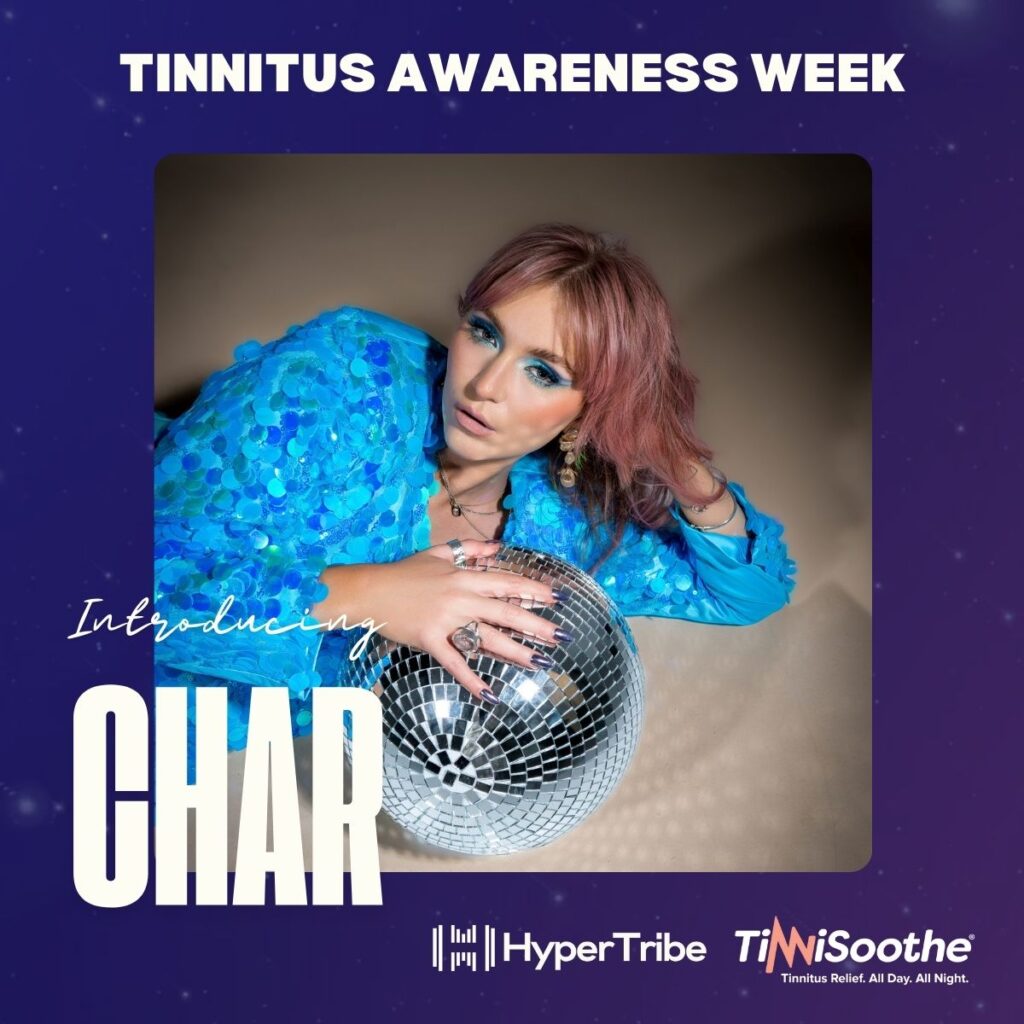The enchantment of a music festival has ever carried you away? Among the several reasons why music festivals have a particular place in our hearts are the thrilling atmosphere, pulsating beats, and the sense of a sense of community This blog post delves deeply into the dynamic realm of music festivals, providing analysis and ideas that will enthrall both festival attendees and music lovers. From the historical roots of these great events to the newest trends influencing the festival industry, you will find all there is to know about music events including its cultural and financial effects. Get ready for an amazing trip around the realm of music events!
The Evolution of Music Festivals
From Woodstock to Coachella: A Brief History
From their first origin, music festivals have evolved a great distance. Attracting around 400,000 people to a 600-acre dairy farm in Bethel, New York, the fabled Woodstock Music and Art Fair in 1969 marked a turning point in music history. Future events were set up by the celebration, which included legendary acts by Jimi Hendrix, Janis Joplin, and The Who.
By the late 1990s, a fresh player was on the scene at the Coachella Valley Music and Arts Festival. Celebrated yearly in California’s Colorado Desert, Coachella soon came to represent modern music, fashion, and art. It is a cultural phenomenon because of its varied lineup, which covers electronic dance music (EDM) and rock. Globally nowadays, music festivals abound, each providing a special fusion of art, culture, and sound.
Celebrated events including Glastonbury in the UK, Tomorrowland in Belgium, and Lollapalooza in the United States have become household names drawing millions of participants annually.
The Rise of Electronic Music Festivals
Electronic music festivals first emerged quite rapidly at the turn of the millennium. The contagious rhythms and high-spirited performances of EDM have enthralled listeners and inspired festivals focused just on this genre. One such celebration is Tomorrowland, which started in 2005. Originally staged in Boom, Belgium, it has expanded to become among the biggest and most well-known electronic music events worldwide. Another big player in the EDM industry, Ultra Music Festival started in Miami in 1999.
Ultra, which is well-known for its complex stage designs and top-notch DJ roster, has grown to other locations all over including Tokyo, Johannesburg, and Rio de Janeiro. Initiated in 1997, another well-known brand in the realm of electronic music events is the Electric Daisy Carnival (EDC). Featuring amazing light displays, pyrotechnics, and carnival attractions, its main event in Las Vegas draws over 400,000 people yearly.
The Impact of Technology on Music Festivals
In several respects, technology has transformed the experience of a music festival. For those unable to personally attend events, live streaming has made it feasible for fans to view events in real-time. Through YouTube’s cooperation, Coachella lets millions of people all around tune in and enjoy the festival from their homes.
Still, another game-changer is virtual reality (VR). Immersion experiences provided by VR technology let consumers “attend” events virtually. Imagine not leaving your house and being able to visit festival grounds, see events, and engage with other guests.
Through cashless purchases, augmented reality (AR) experiences, and smartphone apps with real-time information, timetables, and interactive maps, on-site technology improves the festival environment. These developments simplify logistics and enable guests to have more fun generally.
The Economics of Music Festivals
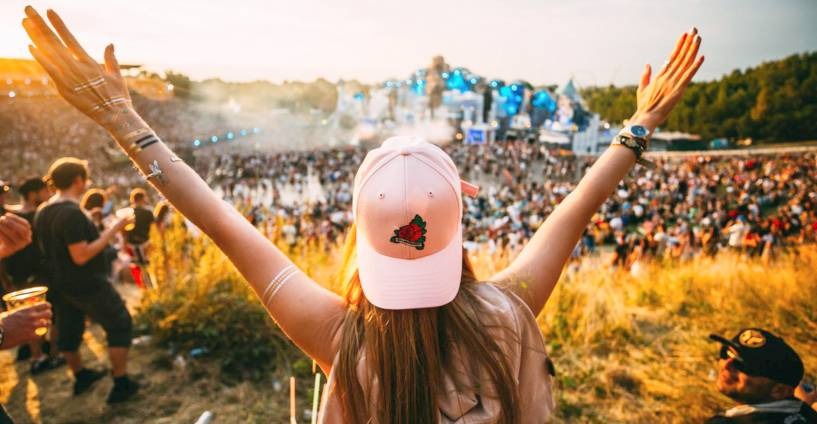
The Business Behind the Festivals
Organizing a great music festival calls for meticulous preparation, strategic alliances, and thorough knowledge of the business. Attracting people and designing an unforgettable experience depend much on marketing trends. Maintaining current with the newest marketing trends helps festival planners to properly advertise their events and attract more people.
Social media platforms are one of the main marketing trends in the sector of music events. Festivities use Twitter, Facebook, and Instagram to interact with their target market and create buzz about the event. Social media lets planners instantly interact with festival attendees, post updates, and announce lineup changes.
Apart from social media, influencer marketing has grown in favor of the festival scene very recently. Working with influencers that fit the festival’s identity and have a sizable following will help to greatly increase ticket sales and create buzz. Often sharing their festival experiences with their followers, influencers generate FOMO (fear of missing out) and encourage ticket buying.
Experiential marketing is another marketing idea becoming rather popular. Festivities now provide a multi-sensory experience for participants rather than only the music. From interactive art projects to immersive marketing activations, events generate distinctive and unforgettable events attendees may post on social media. This kind of marketing not only improves the whole festival experience but also creates natural promotion since guests tell their networks about their experiences.
Organizers of competitive music events have to have a finger on the newest marketing trends if they are to remain ahead. Festivals may draw a bigger audience, boost ticket sales, and generate discussion outside of the event by including social media, influencer partnerships, and experiential marketing.
The Role of Sponsors and Partnerships
The success of music festivals depends much on sponsors and relationships. These partnerships give festival planners tools and financial help so they may present guests with unforgettable events. Attracting sponsors and partners depends in large part on genre variety. Festivals spanning a wide spectrum of genres from rock and pop to techno and hip-hop have more appeal and can draw a bigger attendance. This variety lets sponsors target particular consumer groups and access a varied population.
Apart from funding, sponsors and partners may add to the festival experience using brand activations and interactive installations. They construct special environments where attendees of festivals may interact with their goods and services. This improves the whole festival experience and strengthens the relationship between participants and companies.
Moreover, sponsors and partners could assist with marketing and advertising. They have developed tools and networks from which one may reach a larger audience. Using their marketing activities, they can create buzz and enthusiasm around the festival, thereby drawing more participants and hence boosting ticket sales.
The survival and expansion of music events depend on sponsors and alliances generally. Their financial support, brand activations, and marketing initiatives help the festival to be successful and improve the whole experience of the attendees.
Ticket Sales and Revenue Streams
Regarding ticket sales and income sources, music festivals have grown to be a main source of money for planners. Since festival attendees buy tickets to access the event, ticket sales are vital in producing income. To accommodate varied tastes and budgets, celebrations also frequently have several ticket tiers such as general admission and VIP passes.
Furthermore greatly helping music events to be financially successful are sponsorships and collaborations. Corporate sponsors give money in return for event marketing possibilities and brand awareness. These alliances let planners get more money and tools to improve the event experience.
Music events have lately diversified their income sources outside ticket sales and sponsorships. They have begun to investigate various paths including food and beverage sales, product sales, and possibly live performance live streaming. These extra sources of income enable greater chances for financial development and help to diversify the income sources.
Festival planners should carefully control their income sources and strike a compromise between making money and giving guests an unforgettable experience. Understanding the several income sources and investigating fresh prospects helps organizers guarantee the long-term viability of music events.
The Festival Experience
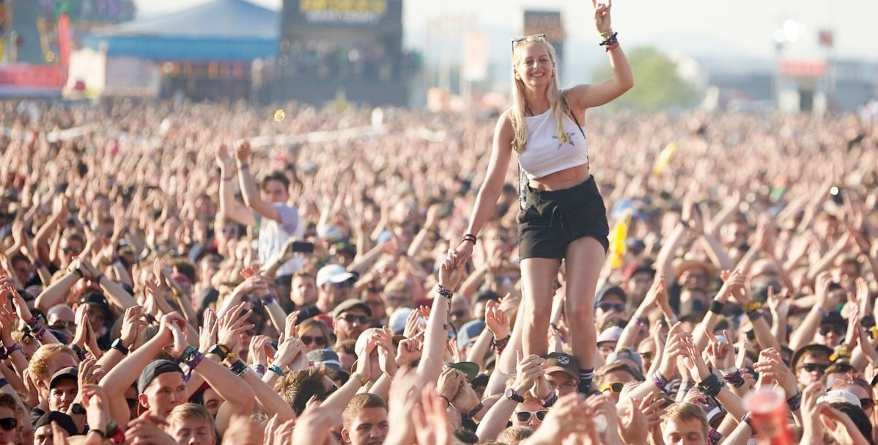
Camping and Accommodation Options
Regarding lodging and camping possibilities at music events, there are several choices to fit any festival-goer’s demand. There is something for everyone from opulent glamping to classic tent camping.
Tent camping is a common choice for individuals who would want a more rustic experience. It lets you cut off from the outer world and enjoy the surroundings. You can arrange your tent and make a comfortable area for rest and renewal.
Conversely, glamping could be the better choice if you’re seeking a more handy and pleasant one. Glamping offers the luxury of a hotel together with the excitement of camping. Staying in a completely furnished tent or even a cottage with cozy mattresses, power, and occasionally even air conditioning is possible.
Apart from conventional camping and glamping, several events include substitute lodging choices. These can include RV camping, in which case you might bring your recreational vehicle or even on-site lodging like yurts.
Whichever choice you decide upon, you should make ahead plans and arrange your lodging. Popular events sell out fast, hence early securing of your place is crucial. See the festival’s website for details on lodging and camping choices as well as any applicable policies.
Recall, the choices for lodging and campsites at music events are meant to improve your whole festival experience. There is something for everyone whether your preferred method of roughing it is in a tent or glamping’s conveniences. So be ready for an amazing journey by packing your camping equipment, and gathering your festival basics!
Food and Beverage Offerings
When it comes to food and beverage options for music festivals, one has much to select from. Festival planners know how important it is to offer a variety of choices to suit all tastes and dietary requirements. There is something for everyone from classic festival fare like burgers and hot dogs to gourmet food trucks presenting unusual and artistic cuisine. Local and sustainable food options at music events have been increasingly included in recent years.
This not only helps nearby farms and companies but also advances a more ecologically sustainable festival cuisine. Nowadays, many celebrations provide vegan and gluten-free choices as well as organic and vegetarian selections. Apart from the cuisine, beverages are also a very important component of the festival experience. Apart from the regular range of alcoholic beverages, non-alcoholic choices abound and include specialized mocktails and reviving fruit-infused drinks.
Water stations are usually set up around the festival grounds since festival attendees should keep hydrated all through the event, especially in hot weather. Generally, the food and drink options at music events have changed to satisfy the many needs and tastes of guests. There is no shortage of choices to suit your taste buds whether your desire is for a traditional festival snack or something novel and daring.
Art Installations and Interactive Experiences
The festival experience consists in large measure interactive events and art installations. These well-chosen installations provide festival attendees with immersive and visually spectacular surroundings. From interactive light displays to big sculptures, these installations give the festival grounds even more thrill and wonder. Meta title: Interactive events and art installations improve the whole ambiance and offer special picture chances for guests.
The Social and Cultural Impact
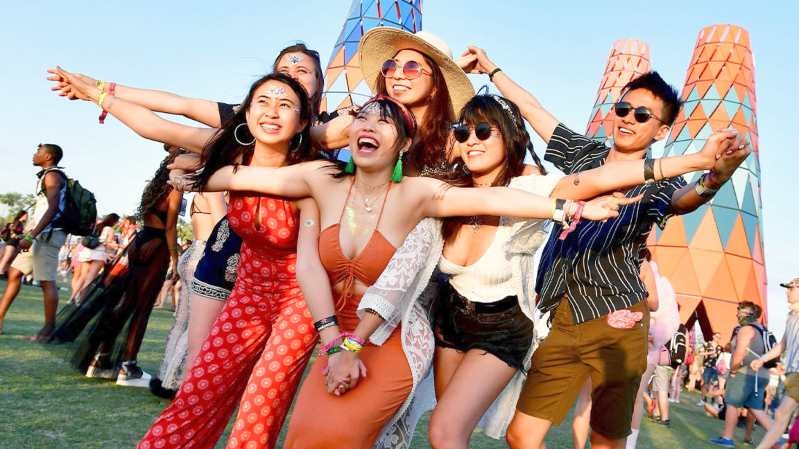
Music Festivals as Cultural Phenomena
Music festivals now serve purposes beyond just a gathering of aficionados. They have developed into cultural events drawing individuals from many spheres of life together. These gatherings give one a stage for interaction, creativity, and self-expression. Many times, resolutions are established at music events since the ambiance and intensity drive people to bring good changes into their lives. Music festivals can inspire personal development and change whether your goals are to live more sustainably, follow a new interest, or deepen relationships.
Festival Fashion and Trends
The experience of a music festival now includes festival fashion and trends almost naturally. Festive attire and styles may mirror the free-spirited, bohemian mood of these gatherings. People embrace unusual and different looks by choosing their clothes, therefore expressing their uniqueness. Festival wear lets participants play with their style from floral crowns and glitter cosmetics to flowy gowns and fringe coats.
Apart from personal expression, festival fashion has evolved into a stage for presenting newly launched designers and brands. Many fashion companies today work with music events to produce limited-edition items or special collections. Along with giving these designers publicity, this cooperation lets festival attendees find fresh and upcoming fashion trends.
Festive fashion has also shaped popular fashion trends. Popularized during music events, the bohemian and eclectic styles have found their way into daily wear. Thanks in part to festival fashion, runways, and retail stores now feature bohemian-chic and retro-inspired outfits.
Although festival fashion is sometimes connected with joy and inventiveness, cultural appropriation should be taken into consideration. Certain festival attendees could unintentionally choose items or clothing that fit aspects of another culture. Approaching festival fashion with respect and understanding is essential since it helps one to appreciate the variety and importance of many cultural traditions.
In essence, the whole festival experience depends much on festival clothes and trends. They let guests share their uniqueness, highlight up-to-date designers, and impact popular fashion. However one should be aware of cultural appropriation and approach festival fashion with respect and appreciation for many civilizations.
Community and Connection
Festivals of music have always been about uniting people and strengthening community and connection. This feeling of belonging is created in great part by user feedback. Sharing experiences and viewpoints among festival attendees not only guides others in making decisions but also improves the ties among attendees.
Learning about someone else’s amazing festival experience can inspire enthusiasm and expectation, therefore fostering a common passion that cuts across personal experiences. From the performers’ roster to the setting and general attitude, these user reviews frequently highlight the special features of every event. Their insightful analysis and suggestions improve the celebration for all those engaged.
One cannot undervalue the social and cultural influence of music. Music may inspire and challenge people’s ideas as well as unite them. It can affect our behavior and help to define our feelings. Music profoundly affects our lives, from the tunes that comfort us in trying circumstances to the anthems that bind us together at concerts.
A Closer Look at Upcoming Music Festivals in 2024
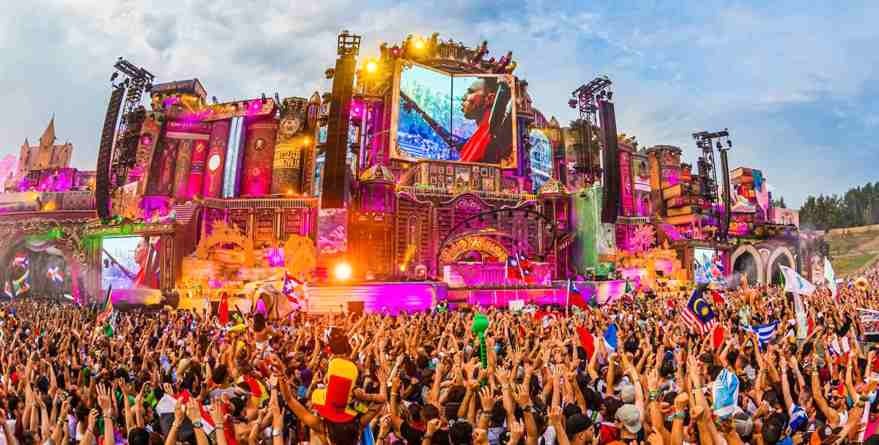
The anticipation for music festivals in 2024 is palpable, with fans eagerly awaiting the return of their favorite events and the debut of new ones.
Here are some of the most anticipated festivals to look forward to in the coming year:
- California, USA: Coachella For fans of music, Coachella is a must-see event with its legendary desert backdrop and star-studded program. With performances by both seasoned musicians and up-and-coming performers, the 2024 edition promises to be a mixed bag of genres.
- Somerset, UK: Glastonbury Celebrated for its varied program and distinctive atmosphere, Glastonbury is among the most well-known events in the world. With something to appeal to everyone, the 2024 edition will include music, arts, and culture.
- Tomorrowland (Belgian Boom, Boom): Tomorrowland, a utopia for EDM aficionados, is known for its outstanding stage designs and first-rate DJ selection. Offering an exceptional experience for every visitor, the 2024 edition will keep stretching the bounds of what a music festival can be.
- Essence Music Festival (New Orleans, USA): Celebrating African American music and culture, the bright and inspirational Essence Music Festival (New Orleans, USA) is Along with motivating discussions and seminars, the 2024 edition will feature performances by top R&B, hip-hop, and gospel musicians.
- Country Thunder Music Festival ( Various Locations, USA & Canada): Renowned for its pleasant environment and great performances, Country Thunder is a refuge for country music aficioners. The 2024 edition will be held in several venues giving fans throughout North America the opportunity to enjoy the charm of country music.
Read Also: Must Listen Music Industry Podcasts
FAQs
What is the biggest music festival?
Donauinselfest in Vienna, Austria holds the largest attendance count among music festivals. Attracting more than 3 million attendees annually, this free yearly event boasts a varied roster of musicians spread over several venues.
When was the first music festival in the world?
With the Pythian Games in ancient Greece, conducted in 582 BC, regarded as one of the first instances, the idea of music festivals goes back millennia. These games celebrated both physical and artistic ability by including musical contests with sporting activities.
Why are music festivals successful?
One reason music festivals are so popular is the unforgettable experiences they provide to participants through a special combination of live music, visual art, and community. Festivalgoers form deep bonds of friendship and loyalty through the common experience of music, culture, and connection. Contributing to their continued popularity are the economic benefits as well as the potential for artistic expression.
Conclusion
Music festivals are a captivating blend of art, culture, and community, offering attendees unforgettable experiences and lasting memories. From their historical roots to the latest trends and innovations, music festivals continue to evolve and shape the cultural landscape.
Whether you’re a seasoned festival-goer or a curious newcomer, there’s always something new to discover in the world of music festivals. By understanding the economic, social, and cultural aspects of these events, you can gain a deeper appreciation for their significance and impact.
If you’re ready to immerse yourself in the world of music festivals and experience the magic firsthand, consider joining the Hypertribe membership. Our membership offers exclusive access to festival tickets, behind-the-scenes experiences, and a community of like-minded music enthusiasts. We feature interviews with professionals and insights from our founder, Kimmy Dickson, who knows what it takes to make it in music. Sign up today and start your festival adventure with us!


